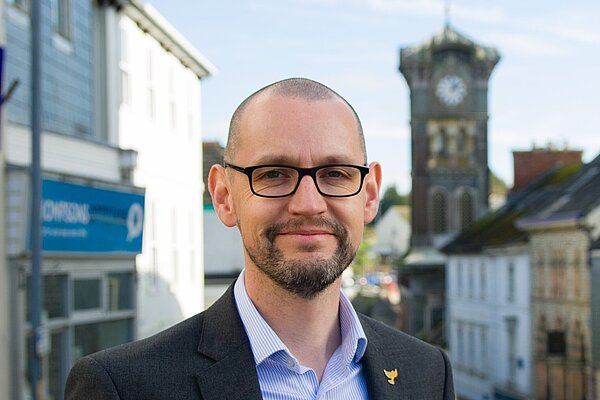LAST week the campaigning and celebrating drew to a close and the nation’s politicians got down to business.
In Cornwall Council’s first meeting since the election, I proposed a motion calling on Cornwall’s new MPs to secure more government funding for our local public services.
For decades, the Liberal Democrats have campaigned for a “Fair Deal for Cornwall”, which misses out on hundreds of millions of pounds because government “funding formulas” work against us. If anything, Cornwall ought to receive more than the national average because delivering public services in a rural area is more expensive, but in fact we receive far less than others. For example, Cornwall’s funding for children with Special Educational Needs and Disabilities is £15.1-million per year below the national average.
The cost of this underfunding is a vicious cycle — for the sake of a few thousand pounds of support in school, generations of a family are dragged into poverty and collectively Cornwall gets poorer.
The same downward spirals are repeated across the board: A lack of social workers leads to children being left in unsafe situations which affect the rest of their lives; low pay for care workers leads to hospitals being clogged up with frail elderly patients who can’t go home; a lack of bus services means many people can’t access job opportunities.
Thankfully there was unanimous cross-party support for my Liberal Democrat motion. Now it’s up to our newly elected MPs to persuade the Labour government to give Cornwall a “Fair Deal”. Their task will be made much easier if the government decides to increase the total amount it spends on all councils across the country (every council’s income could go up, but ours could go up by a bit extra).
But the signs are that Labour is planning more austerity for councils: chancellor Rachel Reeves has hinted that she’ll give above-inflation pay deals to teachers and NHS staff, but she insists that this won’t be paid for by raising taxes or increasing borrowing. The only option that leaves is making cuts elsewhere.
And which department suffered the biggest cuts under the Conservatives? Local government.
Labour politicians say that economic growth is their top priority, and have spent the past fourteen years criticising Conservative austerity, rightly arguing that it creates a spiral of decline. Now that they are in power, will Labour reverse this decline by investing in public services (especially councils)? Or will fourteen years of Conservative austerity simply be replaced with Labour austerity? Cornwall’s two new Liberal Democrat MPs will be making the positive case for investment. Will our four Labour MPs do likewise?
Colin Martin
Liberal Democrat Cornwall councillor for Losthwithiel

.jpg?width=209&height=140&crop=209:145,smart&quality=75)



Comments
This article has no comments yet. Be the first to leave a comment.